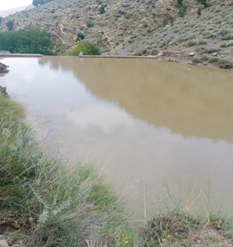The Environment Conservation Organization for Afghanistan (ECOFA) is a non-governmental, non-political, and non-profit organization registered with Afghanistan’s Ministry of Economy. Dedicated to sustainable development, ECOFA works to improve the quality of life for Afghan communities through diverse initiatives.
Key objectives include:
ECOFA aims to be a driving force in environmental conservation, resource management, and societal development across Afghanistan.


Our mission is to actively promote the core aims and objectives of enhancing resilience mechanisms to address the challenges posed by the climate change crisis. Through targeted initiatives, we strive to empower communities to adapt and respond effectively to the impacts of climate change. Our efforts focus on fostering sustainable practices, strengthening environmental stewardship, and equipping vulnerable populations with the tools and knowledge necessary to build a resilient future. By integrating climate adaptation strategies into our programs, we aim to create lasting solutions that safeguard both people and the planet. Driving meaningful development within society while staying aligned with our vision and guiding principles. To achieve this, the NGO implements programs designed to facilitate societal growth through various initiatives. Key areas of focus include enhancing the environment, providing essential social and technical services, and empowering communities through implementing different water reservoir constructions for surface and ground water management and dissemination of knowledge. By fostering environmental improvement, strengthening social infrastructure, and educating individuals, our programs aim to create a sustainable, informed, and resilient society and local mechanism that thrives on shared values and collective progress.
We envision a future where our environment thrives in its natural state, marked by improved ecosystems, sustainable use of resources, and heightened awareness among communities. In this future, water is conserved and managed responsibly, agricultural practices are sustainable and productive, and every individual is empowered with knowledge of their social and educational rights. This vision represents a harmonious balance between humanity and nature, fostering resilience, equity, and prosperity for all.